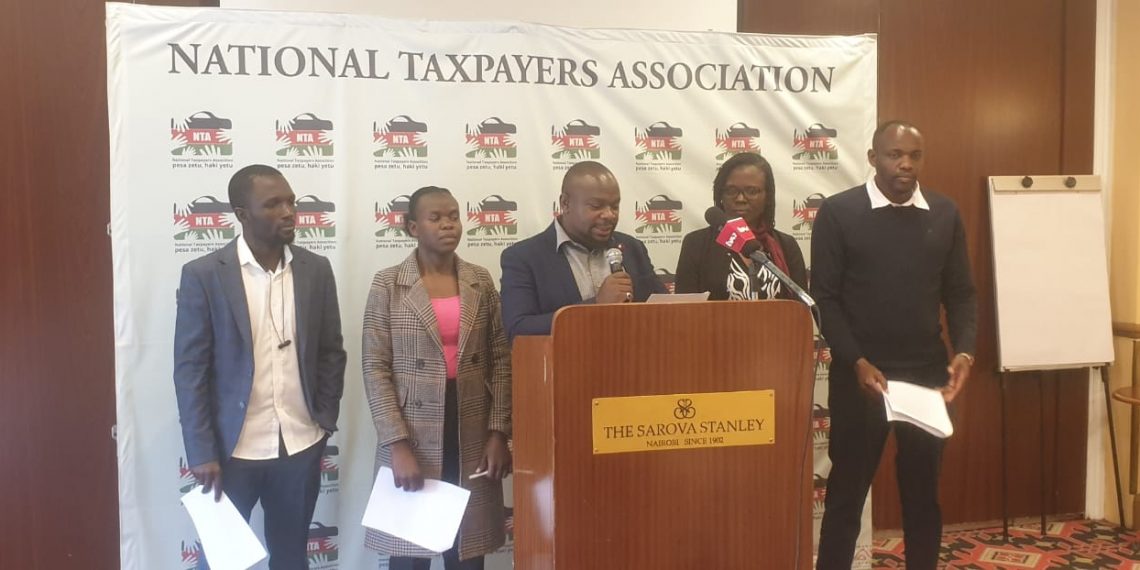A coalition of public health and tobacco-control advocacy organizations is sounding the alarm over Kenya’s deepening Non-Communicable Disease (NCD) crisis, warning that chronic underfunding, erratic resource allocation, and weak policy enforcement are fueling a health emergency.
The Kenya Tobacco and Nicotine Tax Coalition (KTNTC)—a consortium of civil society organizations including KETCA, NTA, IILA, CIN, SCAD, Den of Hope, KENCO, and NCD Alliance Kenya—is calling on the government to significantly increase budgetary allocations for NCDs and introduce higher taxes on tobacco and nicotine products to curb rising cases and finance health sector needs.
According to KTNTC’s Joint Budget Analysis (2020/21–2025/26), NCDs now account for more than 41percent of all deaths in Kenya. Cancer, in particular, has emerged as the leading NCD-related killer, devastating families and pushing households into poverty. Yet, despite the severity of this burden, national and county-level budgets for NCD prevention, diagnosis, and care remain staggeringly insufficient.
“A cancer diagnosis often marks the beginning of financial ruin for many families,” said Prisca Githuka, Board Member of the Kenya Network of Cancer Organizations (KENCO). “There’s a dangerous disconnect between Kenya’s health budget priorities and the actual burden of disease. It’s a matter of justice, equity, and human rights.”
Prisca criticized budget allocations as a reflection of underserved lives and missed opportunities, urging leaders to move beyond rhetorical commitments to tangible investments in early detection, treatment, palliative care, and prevention—particularly for tobacco-related ailments.
Thomas Lindi, CEO of the Kenya Tobacco Control and Health Promotion Alliance (KETCA), raised concerns about the misallocation of funds meant for tobacco control.
“We are receiving reports that Tobacco Control Fund resources are being diverted to unrelated programs. This violates the Tobacco Control Act and undermines efforts to reduce tobacco-related disease,” said Lindi.
In response, KTNTC is collecting public signatures to demand accountability and ensure that these funds are used exclusively for tobacco cessation, public education, enforcement, and research, as originally intended.
The budget analysis paints a grim picture, David Odhiambo of Den of Hope highlighted dramatic fluctuations in NCD funding: from KSh 2.25 billion in FY 2023/24 to just KSh 749.3 million in FY 2024/25, before rising again to KSh 2.2 billion in FY 2025/26.
“This kind of instability makes it impossible to plan or deliver services effectively. NCD funding should be consistent and aligned with the rising disease burden,” he said.
Kenya’s own National Cancer Control Strategy 2023–2027, which calls for KSh 49.2 billion, has received less than 10percent of the required funding so far, casting doubt on its implementation.
Anne Avonde, Project Manager at the National Taxpayers Association (NTA), noted that tobacco and nicotine use—major risk factors for NCDs—remain high due to low taxes. Currently, only 32percent of the retail price of tobacco products is taxed, far below the 70percent threshold recommended by the World Health Organization’s Framework Convention on Tobacco Control (FCTC).
“Tobacco taxation is a proven public health strategy. If we align Kenya’s excise tax rates with WHO guidelines, we could generate sustainable revenue to fund NCD prevention and healthcare services,” she explained.
According to the Kenya Tobacco Atlas, over 9,400 people die annually from tobacco-related illnesses, while nearly half of patients undergoing treatment for chronic respiratory disease, cancer, and diabetes in 2022 had a history of tobacco use.
Benjamin Odhiambo of Students Campaign Against Drug Abuse (SCAD) criticized inefficiencies in Kenya’s health system, pointing to low budget absorption rates—averaging 86% over the past three years—alongside poor coordination between national and county governments.
“We need to fix leakages, fast-track disbursements, and ensure ring-fenced funding for NCD programs,” he said, adding that prioritizing youth-focused prevention and awareness is critical for long-term impact.
Kenya continues to fall short of key benchmarks. The Abuja Declaration recommends allocating at least 15percent of national budgets to health, while WHO urges a minimum of 5% of GDP—figures Kenya has yet to achieve.
The coalition is urging Policy makers, the National Treasury, the Ministry of Health, and the Kenya Revenue Authority to Increase tobacco and nicotine product taxes to at least 70 percent of the retail price,Ring-fence allocations for NCDs in all future budgets, Fully operationalize the Tobacco Control Fund with transparency and civil society participation, Investments in early detection, screening, palliative care, and rehabilitation services , Strengthen coordination between national and county governments and Boost monitoring and accountability frameworks for NCD programs.
“This is not just a health issue—it’s a socioeconomic one,” said Kevin Oduor of Stowelink. “The Tobacco Control Fund should be protected and grown through dedicated levies. Civil society must be equitably involved to maximize its impact.”
As Kenya moves toward Universal Health Coverage, stakeholders insist that NCDs must be placed at the heart of the nation’s health financing agenda. Without urgent and sustained action, Kenya risks losing the battle against its silent epidemic.














